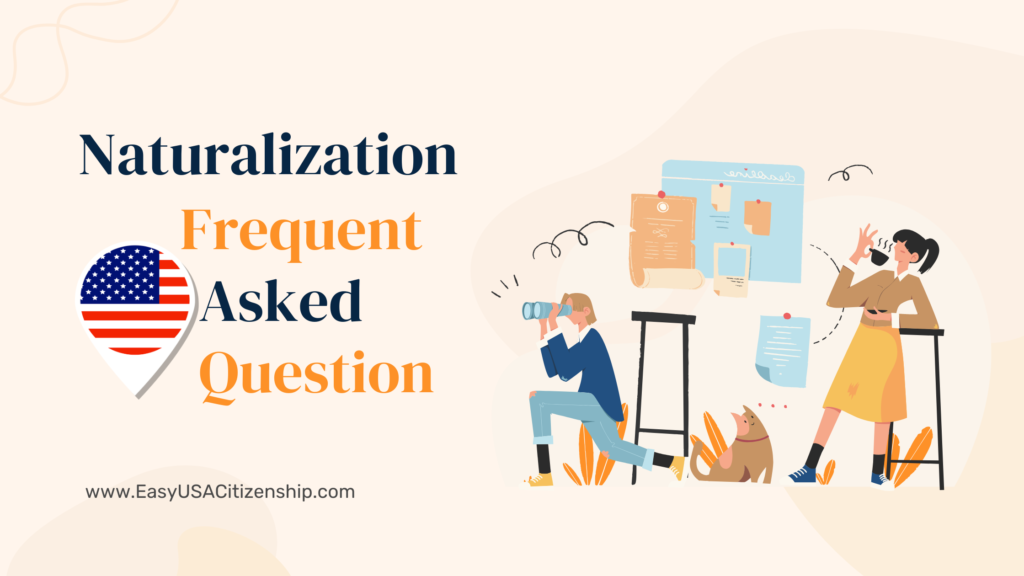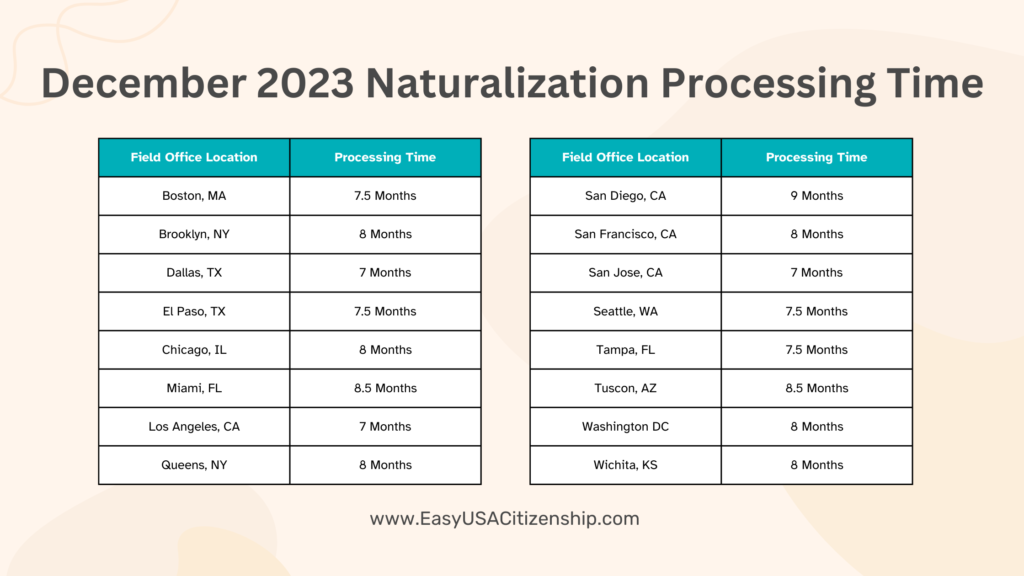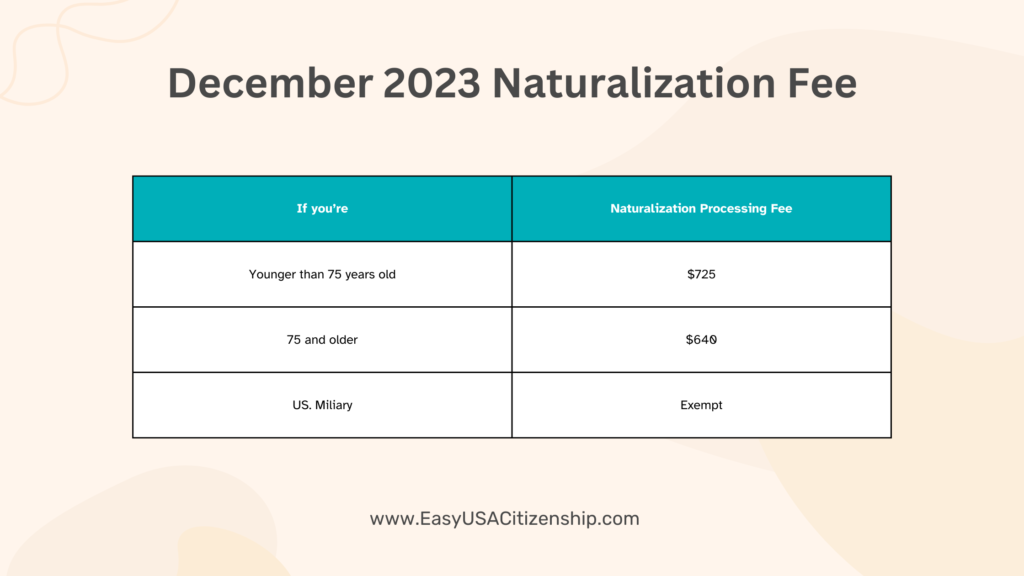
Hello everyone!
Over the past few weeks, we’ve journeyed through the what, how, and steps of the naturalization process. Now, let’s tackle some of the most frequently asked questions you might have. Here we go!
Question 1: How Long Does the Naturalization Process Take?
The timeline for the naturalization process can vary significantly based on individual circumstances and the workload of USCIS offices. Typically, the process can take anywhere from 6 months to a year, or sometimes longer, from the moment you submit your N-400 application to the day of your oath ceremony.
Several factors contribute to this variability:
- Application Processing: The initial step involves USCIS processing your Form N-400. Processing times differ based on the service center handling your application and their current backlog.
- Biometrics Appointment: After submitting your application, you’ll be scheduled for a biometrics appointment. The time it takes to get this appointment can also affect the overall timeline.
- Interview and Test: Once your biometrics are completed, you’ll be scheduled for an interview and the civics and English tests. Scheduling can depend on the availability of appointments at your local USCIS office.
- Decision: After your interview, USCIS will make a decision on your application. This could be immediate, or it might take a few weeks or months.
- Oath Ceremony: If approved, the final step is the oath ceremony. The scheduling of this ceremony is subject to the availability of dates and venues, which can sometimes lead to delays.
It’s important to note that each applicant’s experience can differ. While some may complete the process within six months, others might experience longer wait times. USCIS’s official website provides processing time estimates for each of their offices, which can give you a more personalized timeframe. We’ve compiled the Naturalization processing time as of December 2023. Additionally, staying organized, responding promptly to any USCIS requests, and ensuring your application is complete and accurate can help in avoiding unnecessary delays.
Patience and regular monitoring of your case status, either online or by contacting USCIS, are crucial during this period. Remember, this process marks a significant milestone in your journey towards U.S. citizenship, and while it may take time, it’s a path filled with anticipation and reward.

Question 2: How Much Does It Cost to Apply for Naturalization?
The cost of applying for naturalization, as set by the U.S. Citizenship and Immigration Services (USCIS), is typically around $725. This amount includes two components:
- Application Processing Fee: The major portion, about $640, covers the processing of your Form N-400, Application for Naturalization.
- Biometrics Services Fee: There is also a biometrics fee of approximately $85, which is for fingerprinting and photo services used in your background check.
However, it’s important to be aware of the following points regarding these fees:
- Fee Changes: USCIS fees can change. Always check the latest fee schedule on the USCIS website before applying.
- Fee Waivers and Reductions: Some applicants may qualify for a fee waiver or reduction, based on criteria such as income level, age, or other factors.
- Exemptions from Biometrics Fee: Applicants aged 75 years or older are exempt from paying the biometrics fee. Also, members of the U.S. military applying for naturalization are generally exempt from both the application processing and biometrics fees.
- Additional Costs to Consider: Be mindful of potential additional costs, like obtaining necessary documents, translation services, or legal consultation, if you opt for professional help.
Remember, the fee structure can vary, and it’s vital to use the most up-to-date information. The cost of naturalization is a significant step towards gaining the benefits of U.S. citizenship, including the right to vote, easier travel, and sponsoring relatives for immigration. If you’re uncertain about fees or eligibility for waivers, seeking guidance is always a good approach.

Question 3: What If I Fail the Citizenship Test?
Don’t worry! If you don’t pass the test the first time, you’re given a second chance. You’ll be retested on the portion you failed, usually within 60 to 90 days of the initial interview.
If you’re feeling anxious about the test, consider seeking assistance from organizations that offer citizenship classes or tutoring. Being well-prepared can boost your confidence and improve your chances of passing. We have a lot of resources to help you prepare for your citizenship test and prep interview over the phone or zoom a few days before your actual citizenship interview so that you’re well prepared.
Question 4: Can I Apply for Naturalization with a Criminal Record?
It depends. Some offenses may disqualify you, but not all. It’s important to disclose your entire record in your application and seek legal advice if you have concerns. Depending on what kind of criminal record it is, it is best to talk to an immigration professional about whether you can apply by yourself or need an immigration lawyer. You can create an account and fill out an eligibility form to see if you need a lawyer. Click here to Get Started.
Question 5: Do I Need a Lawyer to Apply for Naturalization?
Not necessarily, but it can be helpful, especially if your case is complex. For straightforward applications, many people successfully complete the process on their own or get assistant from immigration experts. You can create an account and fill out an eligibility form to see if you can apply on your own or not. Click here to Get Started.
Question 6: What Are the Benefits of Becoming a U.S. Citizen?
Becoming a U.S. citizen opens the door to a multitude of benefits, significantly enhancing your rights and opportunities in the country. Here are some key advantages:
- Right to Vote: One of the most significant benefits of U.S. citizenship is the right to vote in federal elections. This gives you a voice in determining the leaders and policies that shape the nation.
- Eligibility for Government Jobs: Many jobs with government agencies require U.S. citizenship. These positions often offer stability, competitive salaries, and comprehensive benefits.
- Family Reunification: As a U.S. citizen, you have greater privileges in sponsoring family members for immigration to the United States. This can include spouses, children, and even parents and siblings, allowing you to reunite with family or bring them to the U.S. for a better life.
- U.S. Passport and Travel Benefits: Holding a U.S. passport allows for easier travel to many countries without the need for a visa. It also provides protection and assistance from U.S. embassies and consulates while abroad.
- Protection from Deportation: U.S. citizens have the security of permanent citizenship. Unlike permanent residents (Green Card holders), citizens are not subject to deportation proceedings under most circumstances.
- Access to Federal Grants and Scholarships: Citizenship often makes you eligible for certain federal educational grants and scholarships, which can be a significant financial resource for higher education.
- Civic Participation: Citizenship allows you to be more actively involved in your community and the country, whether it’s running for public office or participating in jury duty.
- Ease of Re-entry into the U.S.: Citizens have the right to leave and return to the U.S. at will without the risk of losing their citizenship status, unlike permanent residents who may face restrictions.
- Cultural Integration and Sense of Belonging: Becoming a citizen is a powerful symbol of your commitment to and acceptance into the American community, fostering a deeper sense of belonging and identity.
In summary, U.S. citizenship provides not just legal benefits but also a sense of security, belonging, and full participation in the country’s civic life. It’s a significant step in one’s journey in the United States, opening doors to opportunities and rights that enhance one’s life and the lives of future generations.
Question 7: Can I Hold Dual Citizenship After Naturalization?
The concept of dual citizenship involves holding citizenship in more than one country simultaneously, and it’s a topic of interest for many going through the U.S. naturalization process. Here’s what you need to know:
- U.S. Policy on Dual Citizenship: The United States does not require you to renounce your previous nationality upon becoming a U.S. citizen. This means that in many cases, you can maintain dual citizenship, holding onto your original nationality while also being a U.S. citizen.
- Check Home Country’s Laws: While the U.S. allows dual citizenship, your home country’s laws play a crucial role in determining whether dual citizenship is an option for you. Some countries do not recognize dual citizenship and might require you to relinquish your original nationality upon acquiring U.S. citizenship.
- Travel and Passport Use: As a dual citizen, you’ll likely have passports from both countries. Be mindful of which passport to use when traveling, as this can impact your entry and exit requirements in different countries.
While the U.S. permits dual citizenship, the decision to maintain citizenship in another country depends on the laws of that country and personal considerations. Understanding the legal, practical, and diplomatic aspects of dual citizenship is crucial for making an informed decision that aligns with your personal and legal circumstances.
This wraps up our FAQ session! If you have more questions or need specific guidance, feel free to reach out. Remember, the path to U.S. citizenship is a journey we can embark on together. Stay tuned for more insights and tips in our future blogs!
If you’re considering applying for naturalization and feeling a bit overwhelmed, don’t worry – we’re here to help. At Easy USA Citizenship, we offer comprehensive guidance through every step of the naturalization process. From completing your application to preparing for the citizenship test, we’ll be there to support you. Ready to start your journey to becoming a U.S. citizen? Click here to get started with our expert assistance today!